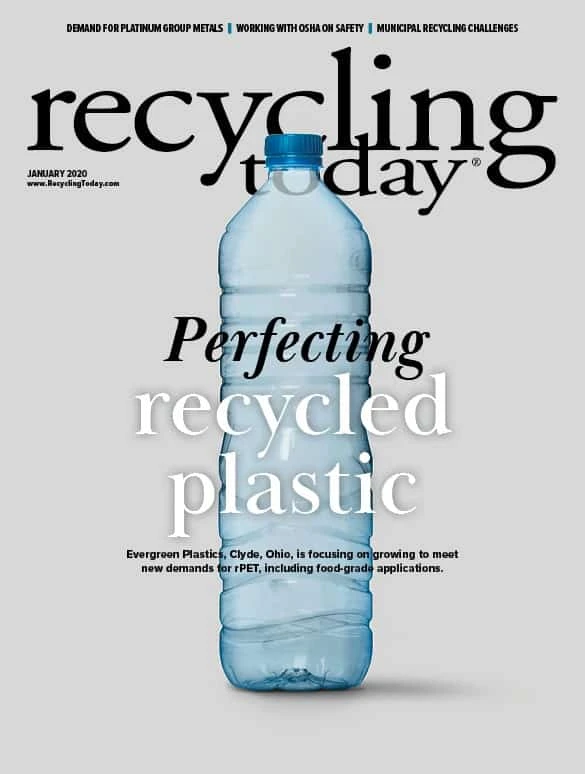U.S. exports of plastic scrap trended downward through the third quarter of 2019, according to data from the U.S. Census Bureau. Representatives from two companies that export this material describe demand as having been inconsistent throughout the last year.
A source with a material recovery facility (MRF) based in the Midwest that handles postconsumer and postindustrial plastics says that as of mid-December 2019, the export market is “picking up.” He says he’s seeing interest from Indonesia, Vietnam and Malaysia for polypropylene (PP) bulk bags, low-density polyethylene (LDPE) film and expanded polystyrene (EPS).
However, given Indonesia’s plans to introduce import regulations for scrap, ongoing trade is in question. The Institute of Scrap Recycling Industries (ISRI), Washington, says it has received an unofficial translation summary of the new import regulations. ISRI says the regulation will introduce an import and export permitting system for trade in “non-B3” materials—those that are “imported for raw material industrial use.”
According to the translation, materials must be shipped directly from the country of origin, inspected before shipment, exported only by companies that obtain permits as outlined in the regulation and imported only by Indonesian companies with permits, ISRI says. Penalties for compliance failures also are outlined in the summary.
“Generation is lower as mixed grades are no longer in fashion and materials need to be source separated.” – a MRF operator based in the Midwest
Domestic scrap generation appears to have lessened toward the end of 2019. “Generation is lower as mixed grades are no longer in fashion and materials need to be source separated,” the MRF contact says.
A broker based in the Midwest says manufacturing has been slowing since May 2019, reducing scrap generation. “I don’t sense that a lot of manufacturers are very busy right now,” he says.
The broker attributes that lack of busyness in part to the ongoing trade war between the U.S. and China, though a deal appears to have been reached as of mid-December. The U.S. did not raise tariffs on Chinese goods as it previously announced it would, and Beijing did not institute planned retaliatory tariffs.
The MRF operator says certain types of plastic scrap, such as polyvinyl chloride (PVC) and PP bulk bags, have been difficult to sell, so his company has been pushing back on offers from suppliers.

Domestic demand is increasing for uncontaminated materials as well as for mixed plastics as processors develop capacity to handle these materials within the U.S., the MRF contact says.
While PP and thermoplastic polyolefin (TPO) were in good demand through much of 2019, the MRF operator says that was slackening as of December. “Injection HDPE (high-density polyethylene) is off, but this usually happens at year-end and will perk up in February/March,” he adds.
Demand and pricing for natural HDPE is strong, with pricing in excess of 60 cents per pound, the MRF contact says. This is despite the overabundance of prime and off-spec plastics available.
The broker based in the Midwest says, “I’m seeing a lot of cheap resin out there destroying repro and regrind. I’m hoping the majors are just trying to get it off their books [before year-end].”
He says PP and PE have been most acutely affected.

Explore the January 2020 Issue
Check out more from this issue and find your next story to read.
Latest from Recycling Today
- Aqua Metals secures $1.5M loan, reports operational strides
- AF&PA urges veto of NY bill
- Aluminum Association includes recycling among 2025 policy priorities
- AISI applauds waterways spending bill
- Lux Research questions hydrogen’s transportation role
- Sonoco selling thermoformed, flexible packaging business to Toppan for $1.8B
- ReMA offers Superfund informational reports
- Hyster-Yale commits to US production





